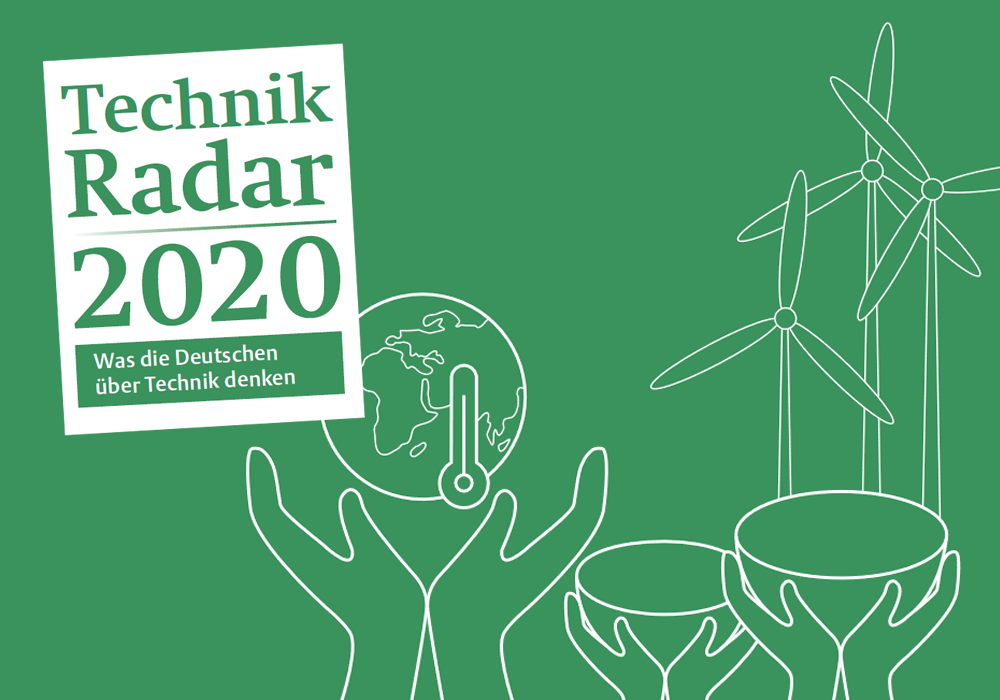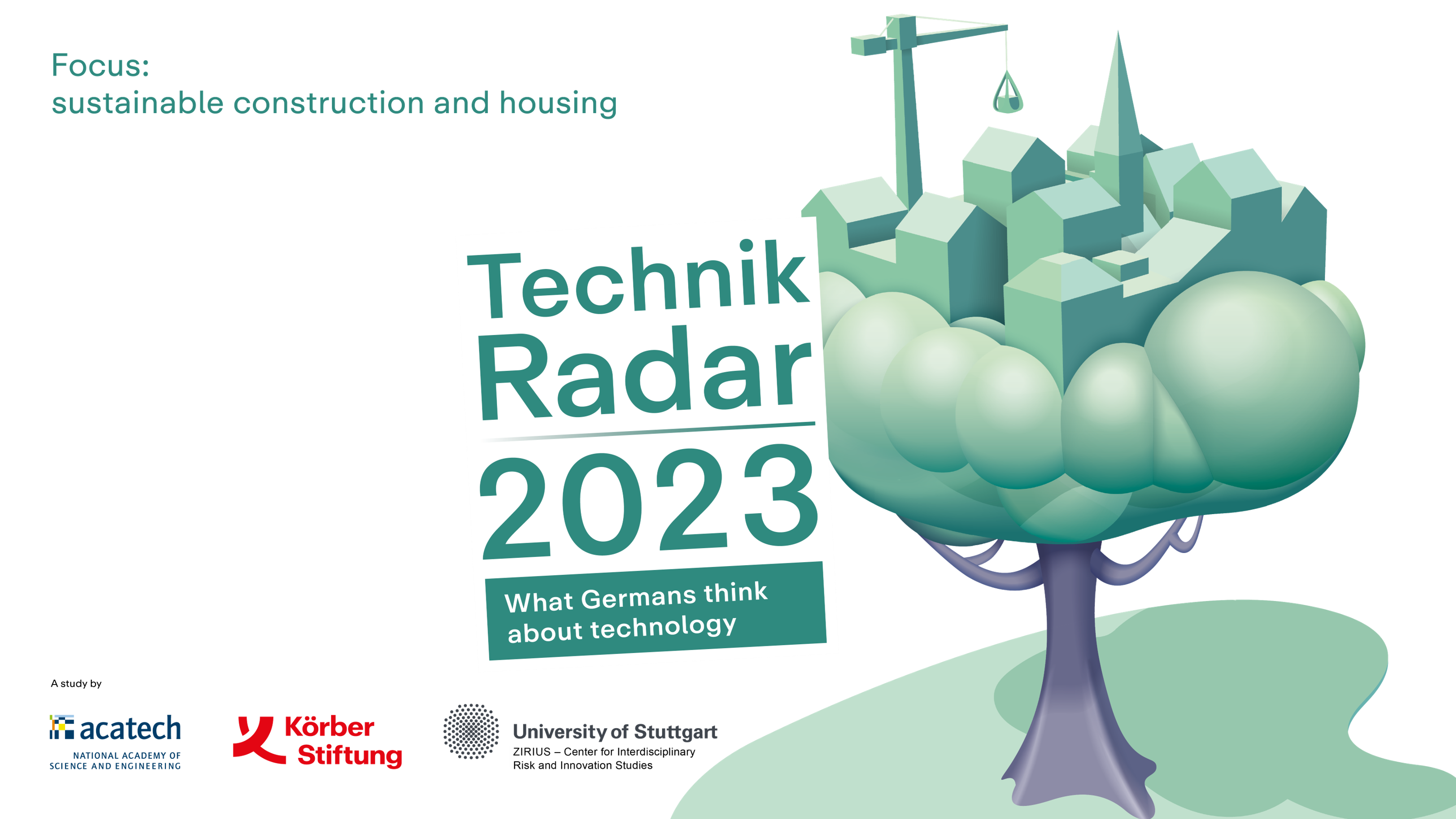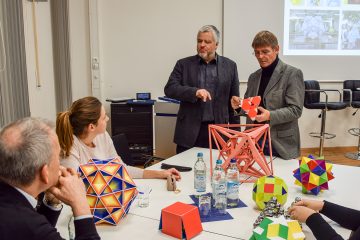TechnikRadar 2020: What Germans think about the bioeconomy

Munich, 20 May 2020
While people in Germany are in favour of bioplastics and biofuels, they do not want lab-grown meat or GM crops. These are among the findings of the TechnikRadar 2020 survey carried out by acatech – National Academy of Science and Engineering and the Körber Foundation. In addition to investigating general attitudes towards technology, this year’s survey also asked people in Germany about their views on the goals and potential impacts of the bioeconomy.
70.2% of Germans believe that Germany should lead by example on climate action, and as many as 74.4% think that protecting the environment will require us to consume less. These are among the findings of the TechnikRadar 2020 survey conducted by acatech – National Academy of Science and Engineering and the Körber Foundation. In addition to investigating general attitudes towards technology, the representative survey carried out in 2020 also asked people in Germany about their views on the bioeconomy. The bioeconomy refers to new products, processes and services that replace fossil resources with biological alternatives or harness our knowledge of biology to contribute to a more sustainable economy that will remain viable in the future.
While Germans support general environmental and climate protection goals, restrictions and bans that affect them personally are far less popular. Only one third (35%) of those who took part in the survey were in favour of higher taxes on fossil fuels. A similarly low proportion (33.4%) supported restrictions on private car use, while almost the same percentage (29.5%) were opposed to any restrictions of this kind.
“The coronavirus crisis will change the attitudes of people in Germany towards technology. Once the current wave of infections subsides, we will conduct a survey to specifically investigate which technologies are now viewed differently. The results will be presented at the end of next year”, says Ortwin Renn, acatech Executive Board member and Scientific Director at the IASS in Potsdam. “Compared to when we carried out the survey, people’s views on bioeconomy issues such as sustainability and climate action may have altered slightly as a result of the current crisis, but we would not expect any dramatic changes in these technology fields. The survey results still provide a reliable picture of what people in Germany think about these goals”, he adds.
Opinion was divided with regard to the government’s role in protecting the environment. When asked whether they thought the government should oblige people to behave in an environmentally conscious manner, roughly a third of respondents said yes (34.7%), a third said no (32.2 %) and the remaining third weren’t sure (33.1%). 59% thought that the State should take measures to protect the environment even if these come at a cost to the economy. “The principle of doing business sustainably is clearly important to people in Germany. However, the picture is less clear when it comes to implementing this principle at a policy level and its direct consequences for them as individuals”, comments Körber Foundation Executive Board member Tatjana König. “The fact that people are only just beginning to form opinions about the bioeconomy provides an opportunity to persuade them of its enormous potential while also recognising its possible side-effects. To do this, we must step up communication of our knowledge in this field and engage in a frank debate with the people who are developing these technologies”.
Replacing plastics with bioplastics
Until recently, all plastics were made from mineral oil. However, bioplastics made from renewable resources now offer a viable alternative. A clear majority of people in Germany (88.4%) think that conventional plastics should be replaced by bioplastics. One in two of the people who took part in the survey (49.7%) also thought that these new materials are important because they can help to reduce Germany’s dependence on international oil markets and potentially provide it with a competitive advantage. However, over half of the respondents thought that growing the crops needed to make bioplastics will have a huge impact on the landscape (64.2%) and result in monocultures (62.6%) and greater use of genetically modified plants (61.1%).
Opposition to GM crops
One of the issues frequently discussed in connection with the bioeconomy is that of GM crops, where genes from the same or different species are used to modify a plant’s DNA in order to make it more resistant and increase crop yields. 57.5% of people in Germany are opposed to this practice. Just 20.9% of respondents recognised the benefits of genetic engineering in agriculture, whereas 66.4% rated the associated risks as high or very high.
Support for biofuels made from waste
Biological waste and residues such as slurry, wood waste, compost and food waste can be converted into fuel using biotechnological techniques, although at present this is only possible on a small scale. The majority of people in Germany (76.8%) are in favour of this promising technology, while 62.8% also think that it should receive government funding. Approximately half (53.4%) of those who took part in the survey thought that the know-how required to produce biofuels will strengthen the economy. In response to these findings, Cordula Kropp, a sociologist at the University of Stuttgart’s Center for Interdisciplinary Risk and Innovation Studies and the project’s lead researcher, comments that “The views on fuels derived from biowaste are a good example of the gulf between ambition and reality when it comes to protecting the environment. While people are extremely positive about the technology itself, many would be opposed to the construction of a large industrial biomass-to-liquid plant in their own neighbourhood.” Almost half (42.1%) of those who took part in the survey said that biofuel plants should not be built near residential areas.
People don’t want to give up meat and have little appetite for the lab-grown variety
The picture is very different when it comes to food. Just 40% of people in Germany believe that the global food supply can be secured if we stop eating meat produced by environmentally-unfriendly intensive farming. Support for this idea is strongest among women over the age of 65 (51.3%) and weakest among men aged between 35 and 65 (32.3%). Lab-grown meat offers one possible means of securing the food supply for a growing global population without relying on conventional livestock farming. In this technique, muscle fibre is produced by culturing animal stem cells in a nutrient solution. Just over half (57.8%) of the people interviewed thought that lab-grown meat could help to secure the global food supply, but only 24.1% of people in Germany could imagine eating it themselves. 64.8% feared that this technique would increase the disconnect between consumers and food production, while almost one in two (47.1%) felt that the risks associated with consuming lab-grown meat are greater than for conventionally produced meat.



